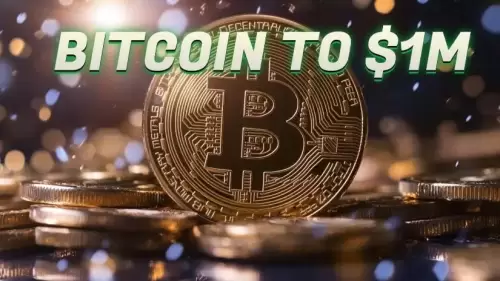 |
|
 |
|
 |
|
 |
|
 |
|
 |
|
 |
|
 |
|
 |
|
 |
|
 |
|
 |
|
 |
|
 |
|
 |
|
Cryptocurrency News Articles
Ben Askren, FUNKY Coin, and the Wild West of Crypto Rug Pulls
Jul 25, 2025 at 07:41 pm
Ben Askren's foray into meme coins with FUNKY highlights the risks and realities of celebrity-backed crypto. Was it a scam, a misjudgment, or just another day in the crypto world?

The crypto world is a wild place, and the story of Ben Askren and the FUNKY coin is a perfect example. Just days after a double lung transplant, Askren promoted a new meme coin, only for it to be ‘rug pulled’ hours later. Let's dive into this bizarre tale of celebrity endorsements, crypto scams, and the ever-present risk of rug pulls.
The FUNKY Coin Debacle
On July 23, 2025, Ben Askren took to X (formerly Twitter) to promote the FUNKY token, urging his followers to invest $100 in SOL or USDC. The link led to a Solana-based meme coin. Sounds straightforward, right? Not so fast. Within 24 hours, the token contract was drained, and the coin's value plummeted. Ouch.
The mastermind behind this? Sahil Arora, a known figure in the celebrity-backed meme coin scene. Arora has a history of paying celebrities like Caitlyn Jenner and Jason Derulo to promote crypto projects, some of which turned out to be pump-and-dump schemes. In Askren’s case, Arora claims he paid Askren a “mid-five figure” sum to promote FUNKY.
What's a Rug Pull Anyway?
For those not fluent in crypto slang, a “rug pull” is when the creators of a cryptocurrency hype it up, get people to invest, and then cash out their entire stake, leaving everyone else with worthless tokens. Think of it as the crypto version of pulling the rug out from under someone. In the case of FUNKY, the perpetrators made a measly $1200, according to Decrypt.co. Not exactly a high-stakes heist, but still shady.
Askren's Side of the Story
Here's where it gets complicated. Askren had recently undergone a double lung transplant and claimed his insurance refused to cover the treatment. He received donations from the MMA community. Arora claims the FUNKY token was intended as a fundraising effort, though he also stated it was a financial failure. The original X post promoting FUNKY is still online, which is unusual given that celebrities typically delete such posts when things go south.
The Broader Meme Coin Landscape
FUNKY's downfall is a microcosm of the meme coin world. Coins like Dege Coin, which recently surged over 120% in 24 hours, capture the high-risk, high-reward nature of crypto. Dege Coin, built on Solana, gained traction amid speculation it might be linked to the Trump family’s crypto platform. While it may become the next Pepe, it also carries risks, like a few wallets holding most of the tokens.
The Takeaway
So, what can we learn from all this? First, celebrity endorsements don't guarantee a crypto coin's legitimacy. Second, the meme coin market is incredibly volatile and prone to scams. As the article points out, even celebrity involvement provides no guarantees of reliability or success.
It seems like 95% of crypto is scams all the way up. At least Ben Askren got paid, and it's possible he didn't know this was an attempt to fleece his fans. Someone who’s spent so much time in the crypto-space needs to be a little more careful with what he's promoting.
Final Thoughts
The story of Ben Askren and the FUNKY coin is a cautionary tale. Whether Askren was duped or simply made a bad judgment call, it highlights the need for caution in the crypto world. So, next time a celebrity tries to sell you a meme coin, remember the FUNKY fiasco and maybe just...walk away. Because in the wild west of crypto, it's better to be safe than sorry.
Disclaimer:info@kdj.com
The information provided is not trading advice. kdj.com does not assume any responsibility for any investments made based on the information provided in this article. Cryptocurrencies are highly volatile and it is highly recommended that you invest with caution after thorough research!
If you believe that the content used on this website infringes your copyright, please contact us immediately (info@kdj.com) and we will delete it promptly.






























































